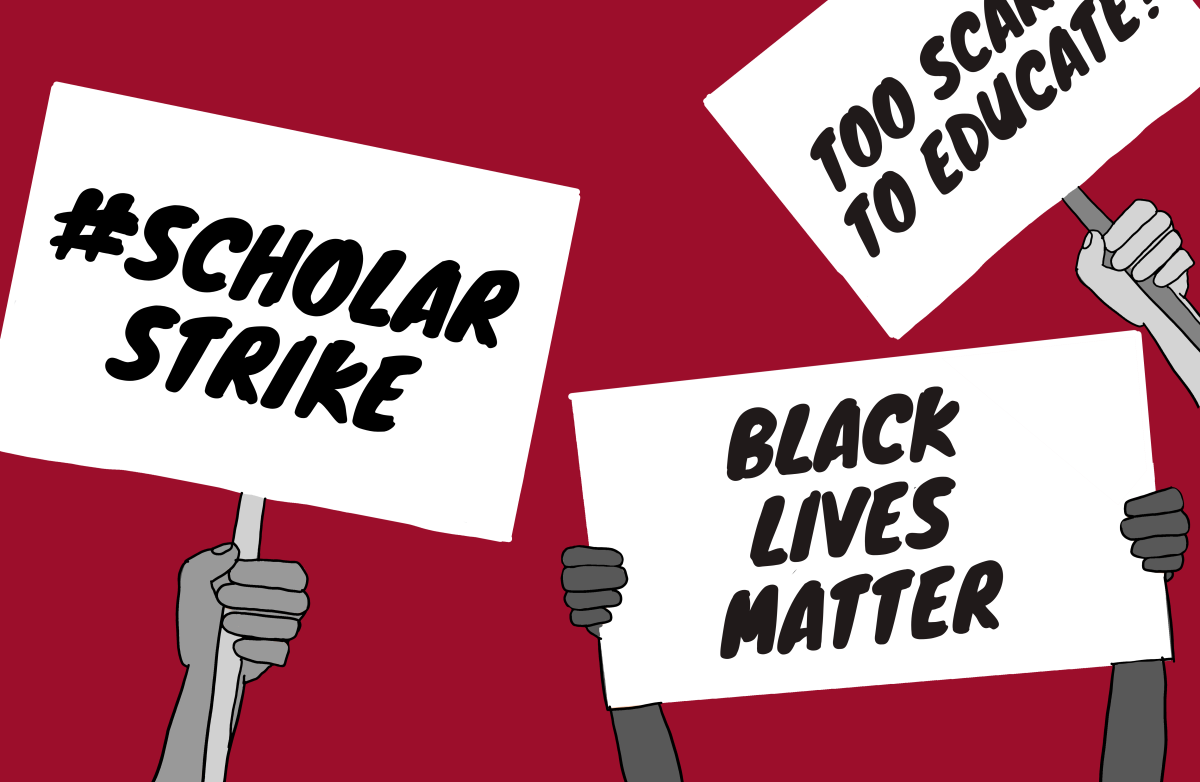Professors and students across the country participated in a nationwide Scholar Strike for Anti-Racism on Sept. 8 and 9 to support the fight for racial justice.
The strike was initiated by Anthea Butler, Ph.D., associate professor of religious studies and africana studies at the University of Pennsylvania, and Kevin Gannon, Ph.D., professor of history at Grand View University in Des Moines, Iowa. Butler and Gannon aimed to bring awareness to the problems of racism, policing and violence, according to their CNN opinion piece.
Professors participated in the teach-in by either canceling classes as part of the strike, or using the class period to teach students about racial inequality.
Lisa Baglione, Ph.D., professor of political science, dedicated the class periods of her American Foreign Policy and Russian Politics courses to educate her students about racial issues within the framework of her curriculum.
“One of the things I’ve been trying to do for the last several years is to get my students to take identity seriously, to not just dismiss it when people want to talk about it,” Baglione said. “[I want them to] see race, gender and identity as important and not just dismiss me as an annoying, feminst, identity politics person.”
Kelsey Welsh ’22 is enrolled in Women and Politics, taught by Becki Scola, Ph.D., associate professor and chair of the Political Science Department. Welsh said the class participated in the strike through a teach-in.
“We spent the whole time in class talking about [the teach-in movement], its audience and what it hopes to achieve,” Welsh said. “Obviously it’s not a demonstration to end racism, but it was very effective at reaching administration who would otherwise not acknowledge it.”
Clare Conry-Murray, Ph.D., associate professor of psychology, wrote in an email to The Hawk that she plans on talking about racial injustice in both her multicultural psychology class and moral development research seminar as part of the teach-in movement.
“We have to actively work to prevent bias, and being ‘colorblind’ doesn’t work—it just means we try to ignore the problem,” Conry-Murray wrote. “It’s really important to address the issues of racial injustice by learning about them, being sensitive to them and working to address them.”
In her research methods course, Conry-Murray said she will discuss racial biases within psychological research experiments and the discrimination people of color face when submitting research. Conry-Murray said holding these discussions in class will allow the conversation of race and racism in psychology to continue.
“Racial injustice can be found all over the place, and it’s really important that we talk about it in all different classes,” Conry-Murray said.
Welsh said the teach-in is a way for discussions of race on campus to finally reach the right people.
“The Scholar Strike says we’re not better than this because we go to a private university, we still have a big part to play in this,” Welsh said. “Administration can either ignore this problem until it just grows in their own circle, or they can use this opportunity to connect with their larger community instead of pretending it doesn’t exist.”
@sjuhawknews I used today as an opportunity to discuss race & racism in economics – the first of many such discussions this semester. In Econometrics, we specifically focused on disparities in K-12 ed funding and impacts on outcomes.
— Laura M. Crispin (@lauramcrispin) September 8, 2020
I have talked about racism in finance in my courses before and will do so again. In Sustainable Finance, we talk about climate injustice and environmental injustice also as it relates to racism. This problem needs to receive much more attention than it has in the past.
— Carolin Schellhorn (@schellhor) September 8, 2020
Christine Di’Santi ’21 contributed to this reporting













































